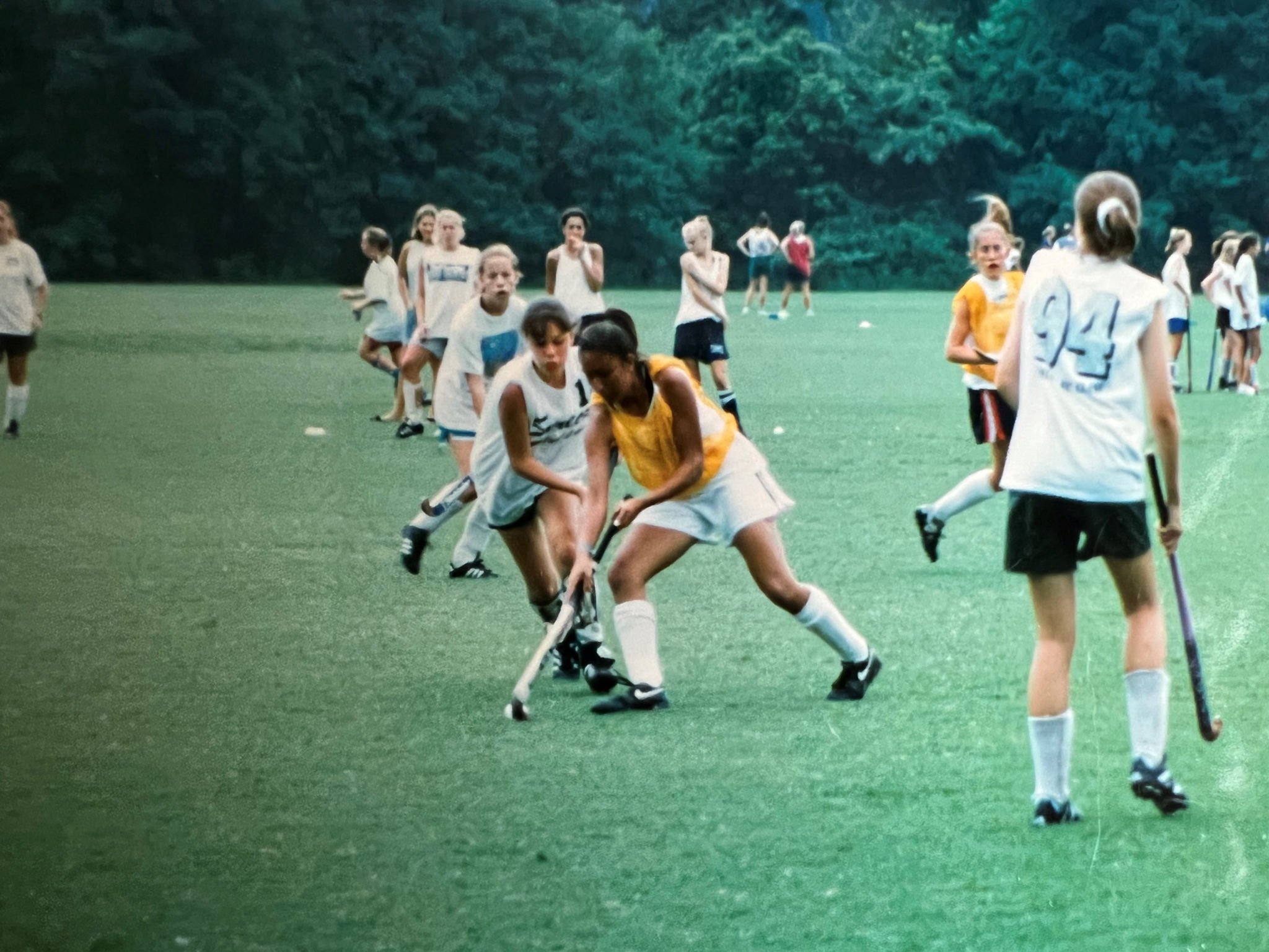“I remember it was mid-April but still a little chilly. Like a lot of parents [during lockdown], we were doing everything we could to fill that time and get our kids outside and not feel like we were standing still.
“We’ve had smaller field-hockey sticks, a gift from my parents, sitting in the garage, and I thought, ‘This is the perfect time.’ There’s a school parking lot not far from us that’s a nice big open space. I took both girls there. At the time, they were four and six. I taught them the basics: How do you hold a stick? How do you bend your knees? How do you hit the ball? How do you stop the ball safely?
“With my schedule, I don’t get to spend a ton of concentrated time with them. My husband is the full-time parent. He also has most of the extra time—the first time riding a bike, the graduation-day photos. But that changed in the pandemic.
“I’ve been an athlete my whole life, and field hockey had the most connection for me because my father played growing up in Pakistan. He taught me how to play in our backyard. In that moment [with my girls], I thought about all the time my dad spent with me, about him coming home at the end of long days at the office and making time on the weekends. About what it must have taken to show up in that way.
“My older daughter peeled off sooner [on that day], so my little one and I kept going a while longer. I don’t know if that’s because she really liked it or she just wanted to spend more one-on-one time with Mama. She started to have a bit of trouble. She was trying to stop the ball when it was coming a little faster, and started to hit it a little harder. She swung and missed a few times, letting the ball go by her to chase it down. And I remember watching her not get frustrated. I remember that surprised me—that she was that determined to do it well, and was willing to do the work to do it well.
“It also gave me some comfort as a parent, because we try to build resiliency, this idea that they’re not going to crumble at the first hurdle. It’s one of the most important things you can teach your children, and I saw that for this glimpse of a moment.”
This article appears in the January 2022 issue of Washingtonian.


















